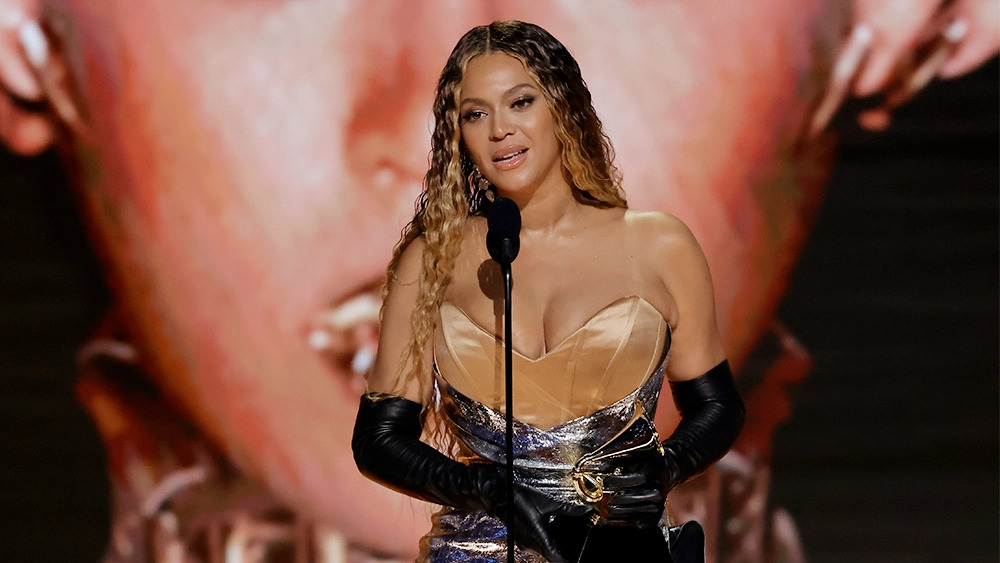On Feb. 5, 2023, history was made at the 65th annual Grammy awards. However, one accomplishment in particular stole the show—legendary singer Beyoncé won her 32nd Grammy, earning her the title of artist with the most Grammy wins of all time. At present, it’s rare to find someone who doesn’t know her name. But how exactly did Queen Bey rise to the level of acclaim she holds today?
Long before the days of “Single Ladies (Put a Ring On It)”, Beyoncé Giselle Knowles started her career at nine years old by forming the group Destiny’s Child along with LaTavia Roberson, LeToya Luckett, and Kelly Rowland in Houston, Texas. While they initially formed the group in 1990, it wasn’t until their release of the single “No, No, No” in 1997 that they became a prominent name in the R&B scene. Destiny’s Child’s unique sound was influential in the genre—their sound incorporated the double-time vocal style, something scarcely seen in the music industry before they brought it into the limelight. The women in the group became a mainstream inspiration for young Black women and women of colour everywhere. As role models for younger women, Destiny’s Child also were the backing vocals for the iconic theme song of The Proud Family, performed by Solange Knowles, Beyoncé’s sister. While the group’s success had the Oxford Dictionary adding “bootylicious” to its vocabulary, nothing compared to the release of Knowles’ debut solo album in 2003, Dangerously In Love. This album boasted collaborations with famous artists, namely Sean Paul, Missy Elliott, and her now-husband, Jay-Z.
Although her musical contributions are nothing if not impressive, her raw talent is not the only thing that has captured the hearts of the masses. Beyoncé uses her enormous platform to stand up for what she believes in. For instance, her song “Flawless” has become a feminist anthem, all the while sampling Chimamanda Ngozi Adichie’s TED talk on gender equality. All the more clear, Knowles has empowered women through her hit song “Run the World (Girls).” Not only this, but she has spoken out against racism by vocalizing her support for and donating $1.6 million to the Black Lives Matter movement. As a Black woman herself, Beyoncé has persistently faced obstacles due to systemic racism and sexism, motivating her to use her platform to promote social justice and better opportunities for underrepresented artists.
Even if she does hold the record for most Grammys won, the awards ceremony has repeatedly snubbed her from one category—Album of the Year. The singer has been nominated many times for albums like I am… Sasha Fierce and, perhaps most notably, Lemonade. Only three Black women have won the award: Natalie Cole, Whitney Houston, and Lauryn Hill. Lemonade, which was simultaneously released as an album and film produced by Knowles herself, could have and should have easily won if not for the Grammys’ racist bias and history.
Despite the majority of her fame coming from her career as a singer-songwriter, Knowles has dipped her toe into Hollywood as well. Her first major acting role came in 2002 when she co-starred with Mike Myers in Austin Powers in Goldmember. Since then, she has taken part in The Fighting Temptations in 2003, The Pink Panther and Dreamgirls in 2006, and the live-action adaptation of The Lion King in 2019 as well. Admittedly, her abilities as a singer are far more noteworthy than her theatrical performance. Even if her movie roles have not been groundbreaking, she does make up for it in pure showmanship. There’s no denying that Beyoncé is famous for good reason: Her singles and albums have been topping the Billboard music charts for over two decades, and even with the calibre of her recorded music aside, her live performances exhilarate her audiences. After all, tickets for her upcoming world tour for her most recent album RENAISSANCE are going for an average of $500. With her laundry list of achievements, she has surely earned her title—all hail Queen Bey.









